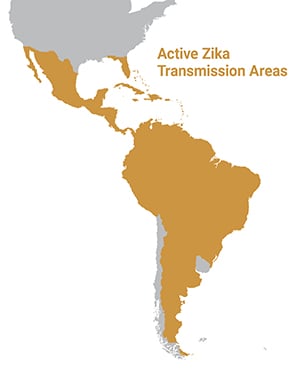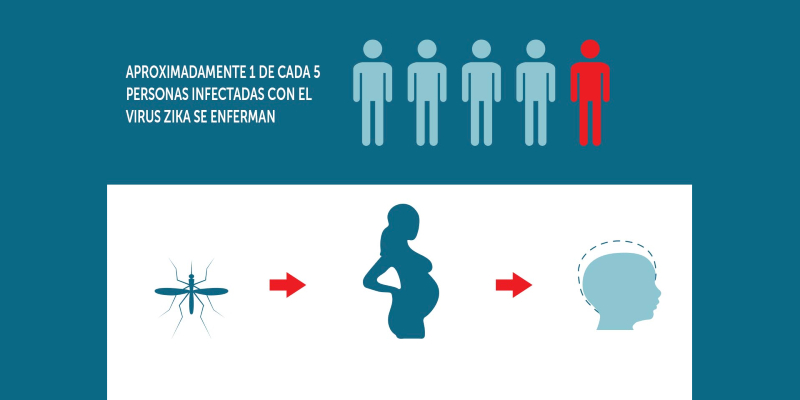Zika virus infection is most commonly spread by mosquitoes and is circulating in such locations as South and Central America and Puerto Rico. Most people who are infected with Zika virus have no symptoms or, if they do have symptoms, they are very mild and can include the following:
- Fever
- Rash
- Red eyes
- Muscle pains or joint pains
People usually do not get sick enough to be hospitalized and they very rarely die. A small number of people who are infected with Zika virus may later develop nerve weakness or paralysis called Guillain-Barre Syndrome. Again, most people with Guillain-Barre recover.
Zika is especially problematic for women who are pregnant or who might become pregnant. There has been an association between Zika and microcephaly, a severe birth defect in which the size of the baby’s head and the brain volume is smaller than expected for their age. Zika infection also has been linked to birth defects that have long-term associated issues, including developmental delays such as:
- Delayed speech and motor milestones (sitting, standing, walking)
- Problems with movement and balance
- Feeding problems, such as difficulty swallowing
- Hearing loss
- Vision problems
Zika Virus Transmission

People can be infected with the Zika virus directly by mosquito bite. Women can also be infected with the Zika virus via sexual transmission from her infected male partner. If you or your partner have traveled to an area that is affected by Zika, the Centers for Disease Control and Prevention (CDC) recommends that you abstain from sexual intercourse or use a condom for the remainder of the pregnancy. Only people whose male sexual partners have traveled to or live in an area with active Zika transmission need to be concerned about potential sexual transmission of Zika virus. An updated list of the countries that have been affected by Zika virus can be found at www.cdc.gov/zika.
If you do not know your partner’s travel history, abstain from sexual intercourse or use condoms every time you have sex for the duration of the pregnancy. Once the virus has cleared the blood, prior Zika virus is not thought to affect future pregnancies.
Zika Virus Prevention
Avoiding mosquito bites is key to preventing the virus, particularly if traveling to a region/area that has been affected by Zika.
- Use an insect repellent approved by the Environmental Protection Agency
- Wear long-sleeved shirts, long pants, and hats to cover exposed skin
- Maximize time spent indoors in air-conditioned or screened rooms
- If you are pregnant and your partner has recently traveled to a country affected by Zika, abstain from sex or use condoms during sexual intercourse for the remainder of the pregnancy.
Facts about the Zika Virus

Roberta DeBiasi, M.D., discusses the Zika virus and its health concerns.
Virus Zika: Lo que usted necesita saber

Dra. Melissa Del Castillo habla sobre el virus del Zika en este video.




